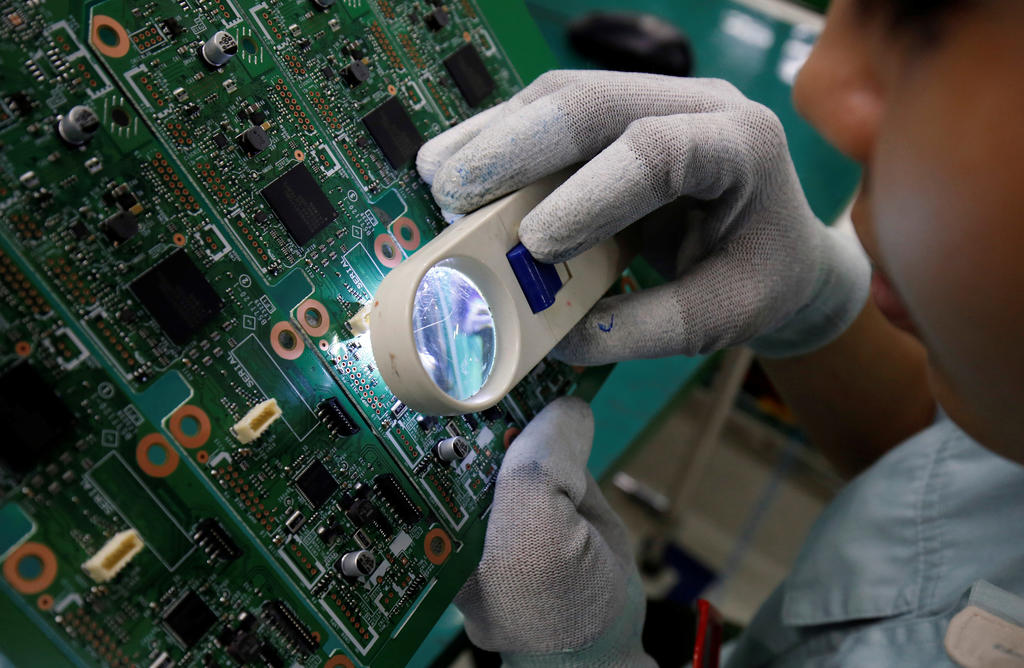Vietnam’s economy to overtake Singapore’s in 10 years: DBS report

A woman looks through a magnifying glass to check errors on a printer circuit board at Manutronics Factory in Bac Ninh province, Vietnam, May 30, 2018.
In a report published on Tuesday (May 28), the bank's senior economist Irvin Seah attributed Vietnam’s robust economic growth in the coming years to several factors including the following: It will benefit from the trade dispute between the United States and China; Economic policies focused on long-term economic stability; Strong investment growth
Right now, Vietnam’s economy is worth US$224 billion (S$309 billion), or about 69 per cent of the size of the Singapore's economy (US$324 billion).
The report’s projections are based on Vietnam maintaining an annual growth rate of about 6 to 6.5 per cent, while Singapore continues to grow at a “matured pace” of 2.5 per cent a year.
“Simply put, the Vietnam economy will be bigger than the size of the Singapore economy in 10 years’ time. And this implies tremendous growth opportunities for companies and investors looking to get a slice of the action,” Mr Seah said in his report.
MAIN FACTORS DRIVING VIETNAM’S GROWTH
Ongoing trade war between US and China: Vietnam stands to benefit as it is strategically plugged into the regional manufacturing supply chain. It also has extensive free-trade agreements with many countries and is geographically close to China. The report noted that foreign direct investment flows from China into Vietnam has been “significantly stronger than usual” — a possible early sign that China is persifying its investments into regional markets.
An electronics powerhouse: Vietnam has become the second largest exporter of electronic goods among members of the Association of South-east Asian Nations (Asean), as investment into electronics grow and high-tech companies — such as Samsung and Microsoft — establish a presence in the country.
Competitive wage costs: Vietnam’s wages are one-third of China’s, on average, and this is one of the main reasons why major electronic manufacturers are relocating to the country.
Quality human capital: Vietnam ranks second among Asean countries in the World Bank Human Capital Index, likely a result of a high expenditure on education. It also has a relatively young population, with a median age of 30.
Infrastructure investment: Vietnam invested 5.8 per cent of its gross domestic product (GDP) on infrastructure development, significantly more than its other Asean neighbours. This would help to support longer-term expansion of the economy, the report said.
Economic stability and sustainability: Policymakers in Vietnam are focused on longer-term economic stability rather than growth per se. “Domestic reform, albeit tepid, has been ongoing,” the report said. It added that the long-term prospects of Vietnam’s economy are “positive”.
VNF
Recommended
 Economy
Economy



